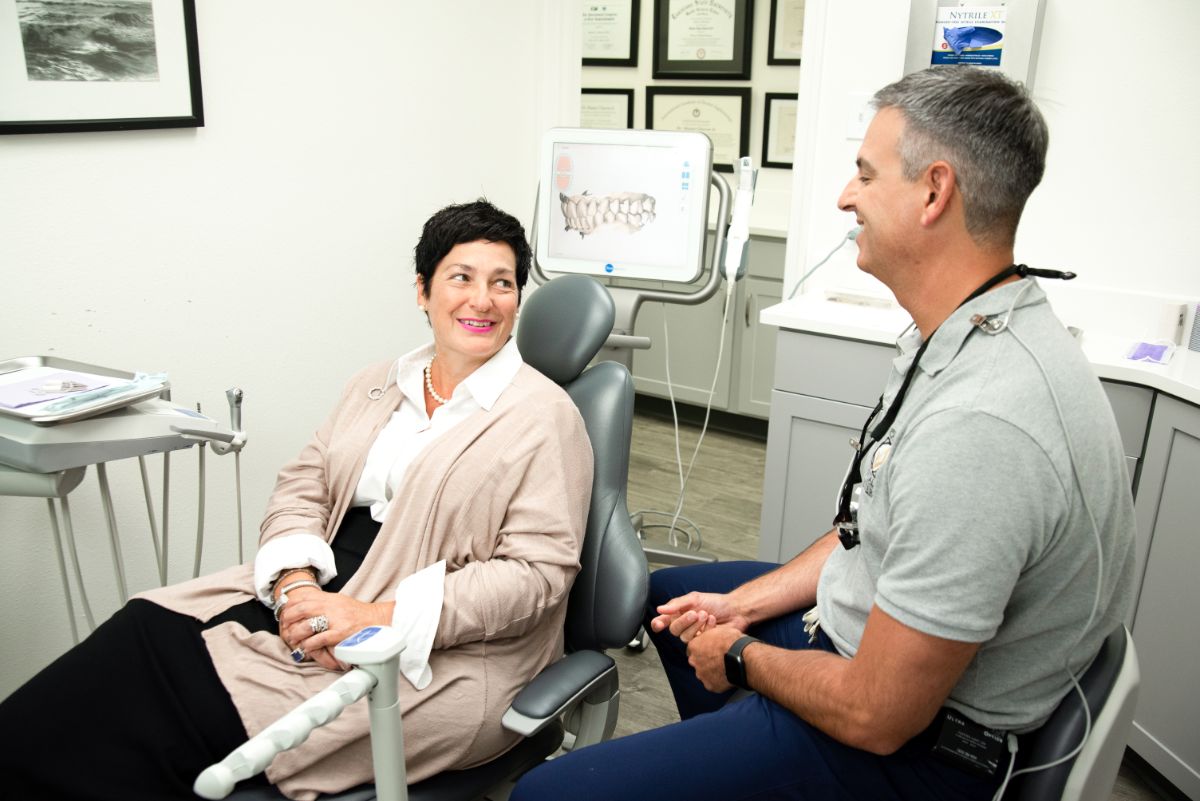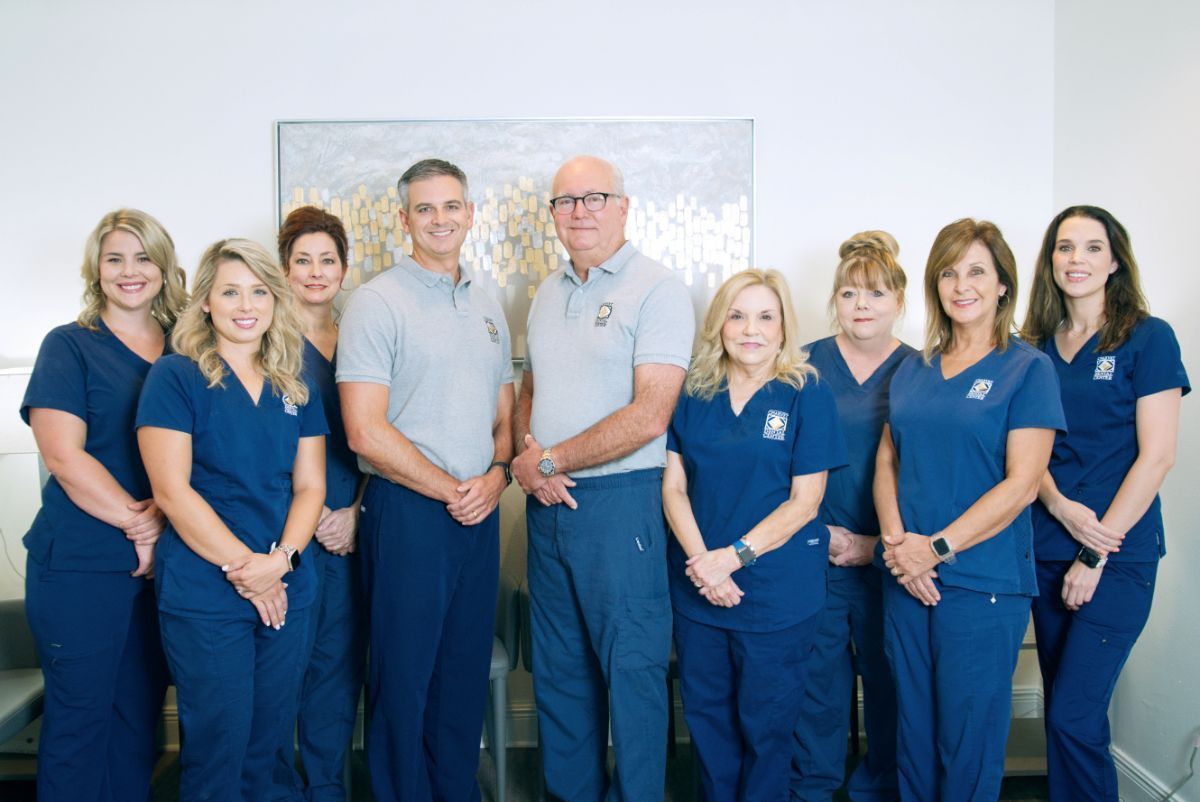Your smile is one of your greatest assets. It’s your first impression-builder, your confidence booster, and the main way to project your happiness to the people around you. Without the strong, straight, and white teeth you deserve, you put your smile at risk of developing cavities, and trust us, you don’t want a cavity!
Protecting your teeth is a full-time job, which is why our team at Charvet Dental Center recommends daily brushing and flossing. You’ll need to maintain a regular oral hygiene routine to ensure your teeth stay happy and healthy. Even patients who keep up with their oral care, however, may develop a cavity or two in their lifetimes. So how do you tell if you have a cavity? Keep reading to find out!
Cavities: What are they?
At the root of it, cavities are permanent holes in the enamel of your teeth caused by tooth decay. Cavities can be painful, unsightly, and destructive to your oral health. Left untreated, these holes allow bad bacteria to sink deeper into your teeth, which could quickly lead to further damage requiring dental attention.
What causes cavities?
When you eat, food particles remain stuck to your teeth. Left over time, these remaining particles invite bad bacteria that are attracted to sugars and starches in your diet. As a result, these bacteria eat the food particles and produce acid waste called plaque.
If you’ve ever felt a sticky or sweater-like coating on your teeth, what you’re feeling is a plaque buildup. Plaque produces acid that eats away at your teeth, wearing down the hard outer coating of enamel. The longer plaque is left on your teeth, the more likely it is to form tartar, which is harder to remove and creates a better environment for bad bacteria to continue to grow on your teeth.
All of these combined effects provide the perfect conditions for cavities to form. Once the bacteria penetrates the enamel, it moves to more sensitive areas of your tooth like the dentin layer and finally the pulp, causing considerable pain and discomfort.
How do I know if I have a cavity?
The easiest way to tell if you have a cavity is a toothache. Unsurprisingly, the hole that forms in your teeth causes sensitivity, which can become more and more uncomfortable as time goes on. You may also notice either a dull or sharp pain when eating or drinking hot or cold foods — this is a sign that the hole in your teeth has reached the layer of dentin responsible for feeling in your teeth.
More mature cavities may leave staining on your teeth. You may have a cavity if you notice abnormal white, brown, or black spots on the surface of your teeth. Sometimes, you can even see cavities as a hole or a pit in your tooth.
Risk Factors
Although cavities are one of the most common dental conditions and no one is immune to them, there are a few factors that put some people at risk more than others.
Sugary foods & drinks: Eating or drinking food or beverages with excessive amounts of sugar attracts plaque-forming bacteria. The more you eat and drink these items, the more likely you are to develop a cavity.
Age: Children, teens, and older adults are at a higher risk of developing cavities. Children and teens are less likely to have oral hygiene habits that prevent cavities. Age can also wear down the enamel and weaken the teeth, making cavities more likely to form in older patients.
Heartburn: This condition causes stomach acids to move into the mouth, wearing down your teeth over time. This acid erosion makes it easier for bacteria to attack the layers of your teeth.
Treating Cavities
If you notice any of the symptoms above, it’s time to visit the Charvet Dental Center. Dr. Charvet, Sr. or Dr. Charvet, Jr. will assess your teeth and take steps to reduce your discomfort. These steps could include an oral examination or X-rays to reveal the extent of the cavity. Typical treatments include:
Fluoride treatments: for newly formed or mild cavities, a simple fluoride treatment mind stop or even reverse the damage caused by a cavity. Fluoride helps strengthen your teeth and can restore the sensitive dentin layer, reducing pain.
Fillings: as one of the most common cavity treatments, fillings are usually made of resins or porcelain that match the color of your teeth and fill in the hole caused by the cavity.
Crowns: If the cavity causes severe tooth decay, your tooth may need an extra level of support. Dr. Charvet, Sr. and Dr. Charvet, Jr. always want to protect as much of the root as possible and to do so, they may need to use a crown to cover the affected area. They’ll remove the decayed portion of the tooth and cover the remaining section with a porcelain, resin, or metal cap.
On rare occasions of extreme cavity development, you may need a more extensive solution. Our Charvet Dental team may recommend a root canal or tooth extraction.
How do I prevent cavities from forming?
This is an excellent question. There are many ways to prevent cavities from forming in the first place so you can avoid dental procedures like crowns or root canals. Brushing your teeth twice a day is a proven way to get rid of cavity-causing plaque buildup. Flossing between your teeth at least once a day gets rid of plaque in those hard-to-reach spaces in your mouth. You can also make it a habit to rinse your mouth out with water after meals or snacks so that bacteria never get the chance to form.
Another great way to prevent cavities from forming is to visit the team at the Charvet Dental Center at least once per year for regular checkups. Routine visits help our doctors track your oral health, and by receiving regular cleanings, your teeth will be stronger and more resistant to cavities.
Prevent Cavities at the Charvet Dental Center!
Our team of expert professionals is here to help you take care of your oral health, and that includes preventing and treating cavities. The Charvet Dental Center is dedicated to keeping you smiling. Schedule your first appointment with our doctors today to get the smile you deserve!
 Schedule Now
Schedule Now


